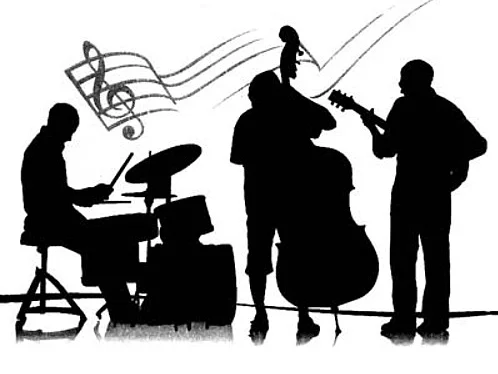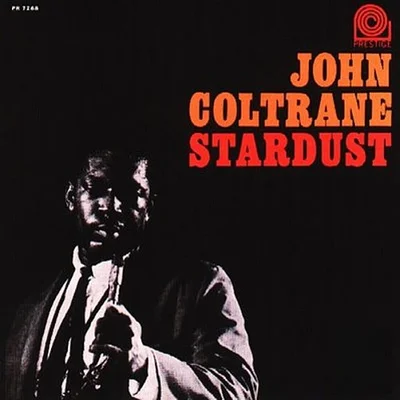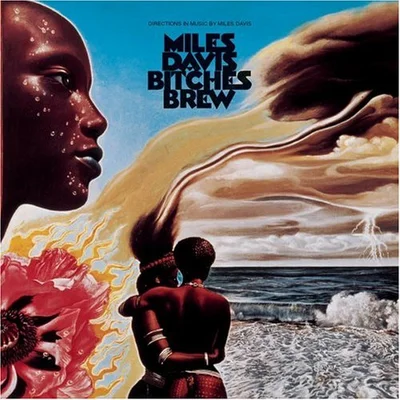
It's a pleasure for me to welcome John Brenner to Cosmic Lava. Most of you will know that he is the guitarist/vocalist of Revelation and Against Nature (as well as the bassist of Chowder), but this time we are not talking about Maryland's doom and gloom. Instead, he tells us about his love for jazz in his new column. So, I will keep my mouth shut and hand over to John.
'Jazz on Vinyl' - Introduction
I love jazz. And vinyl. Thrift stores, too. Jazz, thrift stores, and vinyl. And used record shops. Ok, I need to admit something from the start: I didn't become a fan of jazz until the mid-90s, dead center of "The CD Era". Until recently, all jazz I'd heard came from CDs. (Well, downloading, too, since the late 90s.) Even worse, I don't think I'd even heard a jazz record, I mean a vinyl record, until this year. My recent reacquisition of a turntable, and weekly visits to some area thrift stores and used record stores (yes, they still exist in Maryland), has been absolutely enlightening to me when it comes to the sound of jazz, the vinyl sound I mean. And yes, that does exist, too.
The sound of jazz on vinyl is seductive. CDs, with all their trumpeted dynamic range, don't sound the same. Neither do downloads. The sound of jazz on vinyl has caught me by surprise, grabbed my hand, and guided me to an alluring, sonic paradise, which, while familiar to me when it comes to rock, prog, or classical music, is a new and exciting place for me.
What do you do with a paradise (besides get kicked out)? Share it, that's what! So I'm here to write about some jazz records I've found for a quarter or a dime, in musty boxes, 10 for a dollar, even 40 in a few stores (yes, 40 records for a buck!), in stacks of abused throwaways, underneath half-price iZod shirts, in long rows under counters accessed only by sitting cross-legged on the floor, records crammed between endless John Denver, Montovani, and Three Dog Night albums. Let me turn off my iPhone, turn on the stereo, and get to listening and writing.
John Coltrane - Stardust

It's the first record, and I'm already cheating. For the record I'm about to review was a gift, not a thrift or record store find, but I want to start with the pinnacle of jazz, John Coltrane. If you want the history or "context" - or whatever - behind this record, Google it. I'm about listening to music in order to learn it (and not learn about it). Let's put the needle on the record.
Four songs, three ballads, late 50s Coltrane. I love how old jazz records were recorded and mastered for vinyl, the restricted dynamic range allowing every instrument to sing in its place; nothing sounds discrete or artificial. The bass feels woody, the drums stutter and groove in the background, even the trumpet and flugelhorn never have that brash, brassy obnoxious blurt. Recording to tape sculpts tones into a ball, makes them adhere and coalesce. Coltrane's sax - he doesn't take chances. He sounds like waves of mercury, hints of 'Giant Steps' down the path.
The old black and yellow Prestige label and all the text on the reverse of the cover remind me of untold hours spent in the Enoch Pratt Free Library when I was younger. My copy is kind of scratchy, too, so there's always some static behind the music. I like it. It's like a grainy photograph or a photo printed to paper (remember those?). I don't need the clinical silence of a CD, like a soulless digital photo. Others might agree, too, given the popularity of Instagram for making digital photos look un-digital. You can keep these days of Photoshopped, clichéd, pompous "art" decorating modern CDs and albums. Give me something to read!
What's the sound, man? It's round, all the sharp edges filed and polished smooth as old whiskey. This one goes down easy.
Miles Davis - Bitches Brew

No sooner did I type the last word of my Coltrane piece, then Miles walked up to me and hissed, "What about me, motherfucker?" "No trouble, Miles," I replied, "Which record"? "You only have one--Bitches Brew," he rasped.
The mix is muddier on vinyl than CD. It's a stew, a brew, a zoo of sounds playing off each other, overdubbed, tense, spliced, waiting for Miles (and Teo) to lead them somewhere. I never realized how much the electric piano mimics Miles's lines. And drums on vinyl just sound different from on CD, you hear? Acoustic. Feet in two eras, the bass, electric, upright, never uptight. When Miles is on top of this bitch, he's riding her strong. He doesn't sound detached on the vinyl, unlike on CD, dig motherfucker?
Miles bides his time and comes in at just the right moment on Side A… is he even playing in key? Are these new keys? How many fucks does he give? Easy: Zero. You can hear how everyone follows, waiting like a broke dick dog, taking his cues for the highs and lows. The funky Voodoo of the second record, that pulse holding down the electric wind and wash of the keys that threaten to blow the whole thing over.
How did Teo fit all this badass shit into a mix? I've never figured out if this is even jazz. How many different performances are spliced? You can hear the splices, and I love that. The act of putting this record together is part of the art. "Directions in Music," indeed.
'Bitches Brew' is so menacing on vinyl that I cross to the other side of the street when I hear it. Miles is the Pied Piper here. No one could follow. He had other shit to get to anyway.